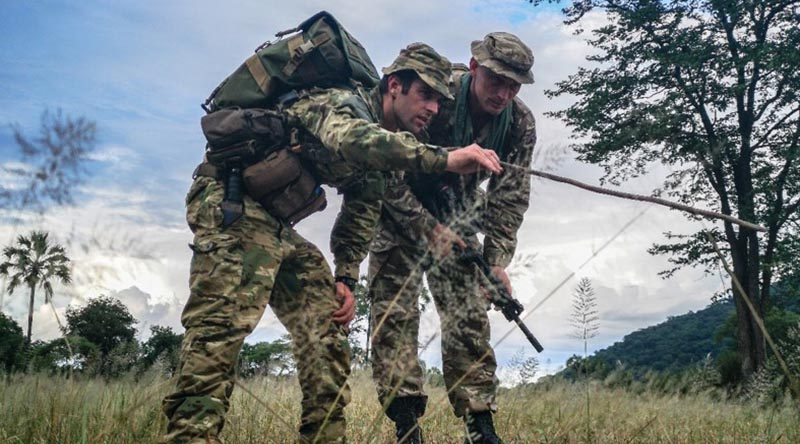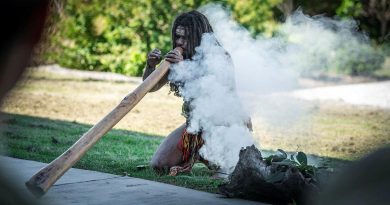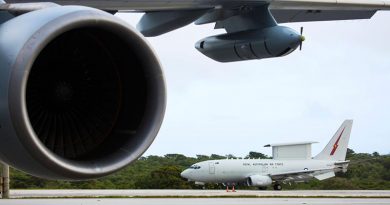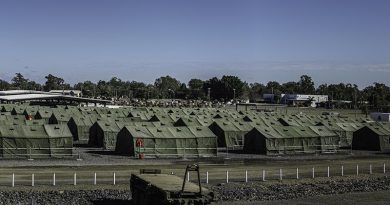New Zealand soldiers on safari in Africa

Two New Zealand Defence Force personnel are working alongside British counterparts to help counter the multi-billion-dollar illegal wildlife trade in Africa.
CAPTION: Lance Corporal Jed Maskill (left), from 1RNZIR, teaches tracking tactics to a British Army soldier in Malawi. NZDF photo.
New Zealand Special Operations Component Commander Colonel Rian McKinstry said two soldiers – one from New Zealand’s Special Operations Forces and one from 1st Battalion, Royal New Zealand Infantry Regiment – went to Malawi in March to complement the training of 30 British Army troops in bushcraft, tracking and wilderness survival skills.
Training was conducted at the 548-square kilometre Liwonde National Park in southern Malawi, which is managed by the non-profit conservation organisation African Parks, whose president is Prince Harry.
The NZDF and British soldiers are helping African Parks rangers tackle poachers.
“Bushcraft and tracking are two specialist skills that New Zealand troops are known for,” Colonel McKinstry said.
The NZSOF soldier [name withheld] said tracking down wildlife poachers meant carrying out patrols in the wilderness that often lasted for days.
“The purpose of the bushcraft training is to share our experience, so that the British soldiers can thrive in the wild and achieve their mission,” he said.
Lance Corporal Jed Maskill, 1RNZIR, said the tracking training, which complemented the training from British instructors from the 2nd Battalion Royal Gurkha Rifles, included theory and practice.
“A tracker needs to pay close attention to any disturbances or signs in the environment, so they can understand the psychology of their quarry or target and anticipate their actions and where they are heading,” Lance Corporal Maskill said.
“These signs could be footprints, broken twigs or bent grass,” he said.
New Zealand troops’ experience in jungle warfare dates to the Malayan Emergency, when they contributed to the Commonwealth effort to defeat the communist insurgency from 1948 to 1960.
Their expertise was enhanced during deployments to Borneo, Vietnam and East Timor.
In the 1960s, New Zealand troops also helped train United States soldiers fighting in the Vietnam War, in visual tracking.
Authorities in Malawi have blamed rampant poaching for halving the Commonwealth country’s elephant population, from 4000 in the 1980s to 2000 in 2015.
Trafficking in ivory, rhinoceros horn and other wildlife products is reportedly worth about NZ$35 billion a year, making it the world’s fifth-largest organised-crime industry, bringing crime and instability into some of the world’s poorest communities, damaging economic growth and sustainable development, undermining governance and the rule of law, and deprives communities of valuable and finite natural resources.
.
.
.
.
.
.

.
.





